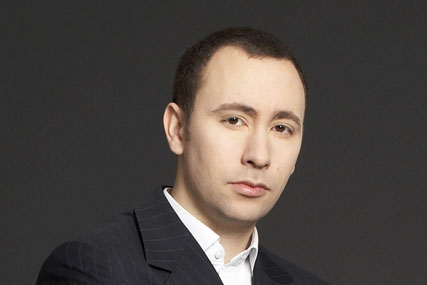The Icelandic volcano Eyjafjallajokull will be difficult to forget for the world's aviation industry - and not merely because of its name.
After the cloud of ash it created led the authorities to ground flights across Europe for six days, airspace began to gradually reopen in the middle of last week. However, the financial impact of the eruption - between £15m and £20m a day in lost revenue for British Airways alone, and more than £1.5bn for the industry as a whole, according to analysts - was the last thing the sector needed just as most carriers were only beginning to emerge from the global economic slump.
There was little the major airlines could do during the closure beyond lobby furiously for the blanket restrictions on commercial flights to be lifted.
In the face of ministerial pronouncements that safety was of paramount importance, and the ambiguity of the scientific data, the industry risked appearing rather ghoulish in its determination to get flying again.
Still, its response was understandable, given the cash squeeze it faces and the fact that much of its customers' ire was vented in its direction, despite the fact that the airlines had no control over the grounding of their aircraft.
It was a reminder - as if the airlines needed one - that their brands and the balance sheets are squarely in the firing line, even when natural hazards mean circumstances are beyond their control.
Coming in the wake of a months-long industrial dispute during which many of its cabin crew went on strike for several days, BA and its embattled chief executive Willie Walsh might be forgiven for wondering what fresh travail lies around the corner.
Yet, as a desperate scramble for compensation from governments across Europe began amid recriminations that the authorities over-reacted to the ash, the impact on BA may turn out not to have been as punitive as the City feared.
The company's share price remained relatively stable during the crisis, an indication that shareholders backed Walsh's handling of the situation.
The fact that all airlines were affected was clearly a factor, but, importantly, BA put into operation a slicker-than-usual communications strategy that included frequent media updates and emails to customers, whereas other carriers, including Iberia and Ryanair, drew coruscating criticism for their attitude toward the disruption.
For other consumer-facing brands, the chaos that ensued after the eruption may turn out to have been a good thing.
That's because the issue of corporate and brand reputation is a priority for many of the chief executives I talk to - many of whom seem to have grasped that at times when consumers face difficulties, demonstrating empathy can benefit them in future.
Take Royal Bank of Scotland, which is majority-owned by British taxpayers, as an example. Its decision to abolish withdrawal charges for customers stranded overseas will have had a negligible financial impact, but may have restored a small amount of goodwill toward the banking industry.
Other financial-services providers made similar gestures. The prospect of thousands of stranded travellers in need of cash may have led some firms to ignore their conscience. Instead, Travelex, the foreign exchange provider, launched an emergency money service to help school parties access funds to see them through their extended trips.
In that sense, the volcano provided a salutary lesson in how companies can turn a crisis to their advantage - at least relatively speaking. As a marketing 'tool', customers' goodwill is invaluable, but too often overlooked.
Mark Kleinman is City editor at Sky News and a columnist for The Times
30 SECONDS ON ... THE COST OF THE AIRSPACE SHUTDOWN
- Under EU regulations, if a flight into or out of the EU is cancelled, the passengers have the right to a refund from the carrier or to be re-routed. If they choose the latter option, the carrier must also cover passengers' 'reasonable expenses', such as hotel and food bills.
- Many airlines have expressed their anger over the length of the airspace closure and the costs incurred. Ryanair is among those that will seek to recover its costs, up to £35m, from the EU. It initially said it would not refund passengers, but soon relented. However, it has also said it will not pay passengers extra compensation for the inconvenience.
- Ryanair boss Michael O'Leary told the BBC: 'If governments close airspace, (they) should reimburse passengers, not the airlines.'
- Low-cost airline easyJet said the flight ban cost it £50m, which included the cost of 15,000 hotel rooms. BA said it lost £15m-£20m a day, while TUI lost £5m-£6m a day.
- An estimated 1.2m passengers a day were affected by the shutdown.


